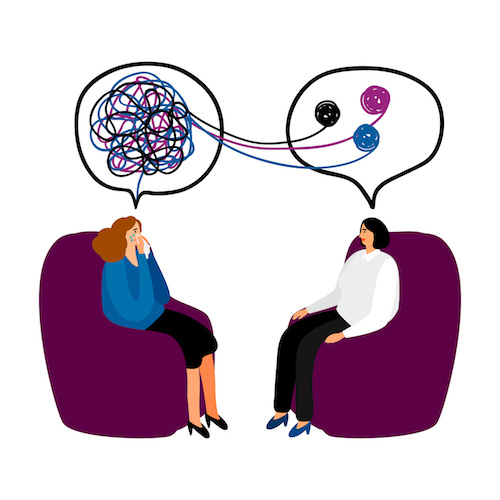
Cleaning out our closets
September 20, 2019
You forgot someone on your gift list!
November 29, 2019My mom was diagnosed with breast cancer 16 years ago. She was a nurse which is part of the reason she religiously saw her gynecologist and went for yearly mammograms. But it wasn’t the doctor or the test which found her breast cancer. It was my mom, doing her own monthly breast exam. She found two tiny lumps her doctor had missed and were too small to be picked up by the mammogram. In fact, her doctor tried to convince her that she couldn’t have felt anything so small, so my mom pushed back and wouldn’t be dissuaded by the doctor. After further testing, it was discovered that she did in fact have cancer – 4 types and the cancer was in both breasts. She went for chemo and radiation and ended up surviving.
Why do I share this story? When it comes to physical illnesses, we understand that early detection and intervention is paramount. While my mom did go through chemo and radiation, if she hadn’t found the cancer when she did, at best, it would’ve meant a longer treatment plan and, at worst, it would’ve meant the cancer could have grown or spread too far for treatment to save her.
This doesn’t take much convincing, does it? We feel a pain in our eye, we go see an ophthalmologist. We feel a pain in our heart, we go see a cardiologist. Pain in our knee? Orthopedic specialist. There is no questioning that physical pain should be addressed and the benefits of addressing the symptoms early are almost common sense.
So what about psychological pain? Anxiety, depression or other mental illness? A frequent question I get asked is, “When is the best time to go for therapy?” I typically respond that therapy is important and can help whenever we feel the symptoms related to emotional or psychological challenges. But the “best time”? It is the same answer as in the examples mentioned above. The best time for therapy is as soon as we notice the psychological pain. Just like physical symptoms, the longer a person waits to see a specialist (in this case, a licensed mental health counselor, therapist, social worker or psychologist), the worse the symptoms get. Therapeutic treatment becomes more intensive. The treatment timeline might get longer. Would you wait to see a physician if a mild pain in your leg became a sharp stabbing pain? What if the pain got so bad you couldn’t walk? What if it spread to both legs? Most of us read this and immediately know that there would be no way we would wait much past the mild-pain-getting-worse phase. Then why do we wait to get help when our psychological pain goes from mild to moderate? Or moderate to severe? Or until it is at a level which detrimentally impacts our functioning? Wouldn’t it be easier and feel better to get help when the psychological pain is mild, an annoyance that is distracting and making us feel “not like ourselves”? The best time for therapy is early in the dysfunctional experience, when the symptoms are mild, and easier to treat; when we are still functional enough to actively engage in the treatment, rather than having to work through bigger symptoms before the treatment can really be effective.
Keep in mind this visual. You try to plug a small hole in a dam. You can feel the pressure of the water, but you fix the hole early and the pressure subsides. Now imagine the same hole and you ignore it. The pressure of the water keeps pressing on the dam and the hole gets bigger. You continue to ignore it and the hole continues to get bigger, or smaller holes pop in the wall, and more water escapes. The longer you wait to deal with the expanding hole or the little holes popping up, the worse the situation gets.
So when you feel like you aren’t functioning at your optimal place…
Or when anxiety or depression start filtering into your daily experience…
Or when you realize that something isn’t quite right when it comes to your emotions or your thoughts…
These are the times to get the support you need, to intervene early, and get back to YOU quicker. And if anyone asks you why you are seeing a mental health professional, just tell them that you’d rather deal with a little leak than a rupture which floods the entire valley of your life.
Just something for your own insight. – Dr. Robin




